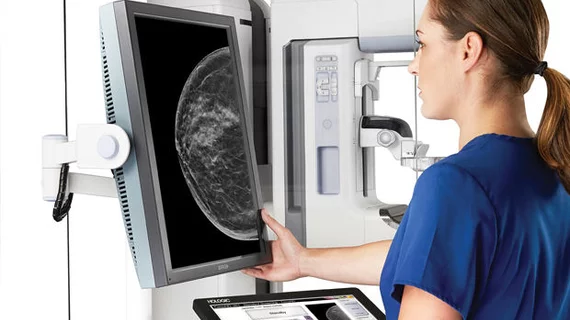Screening mammograms are not as effective as they once were
A new study published in the European Journal of Public Health revealed that the effects of breast cancer screening programs are declining. Why is this happening and what does it mean for the future of breast cancer screenings?
The good news is that the impact screening mammograms have on mortality rates has decreased in relation to the improvement of cancer treatment.
"The beneficial effect of screening is currently declining because the treatment of cancer is improving. Over the last 25 years, the mortality rate for breast cancer has been virtually halved," says Henrik Støvring, of the Department of Public Health at Aarhus University, who is also behind the study.
Stovring notes that there must be a balance between the benefits and harms of screening mammograms, explaining that the exams detect cancer in some women who would have otherwise never known of or felt the effects of the disease during their lifetime, which can lead to both overdiagnosis and overtreatment.
To better understand the effectiveness of screening mammograms, researchers retrospectively analyzed 10,580 breast cancer deaths among Norwegian women aged 50–75 years from 1986 to 2016. Best case scenarios (5–20% mortality reduction) and overdiagnosis scenarios (10–40% excess breast cancers during screening period) were applied to estimate the ratio of overdiagnosis relative to prevented deaths.
Using the number of women needed to invite (NNI) to screening to prevent one breast cancer death within 10 years as the reference, the experts found that there was an increase from 731 in 1996 to 1,364 in 2016. The rate of overdiagnosis in comparison to prevented deaths also rose from 3.2 in 1996 to 5.4 in 2016.
“Due to increasingly potent therapeutic modalities, the benefit in terms of reduced breast cancer mortality declines while the harms, including overdiagnosis, are unaffected,” the authors shared.
This is a trend that the researchers believe will persist as disease management continues to improve.
The detailed study can be viewed in the European Journal of Public Health.
Related breast cancer screening news:
DBT is better for women with increased breast cancer risks
Most states' breast cancer screening plans do not comply with USPSTF guidelines
'Surprising' decline in annual screening among breast cancer survivors has experts concerned

